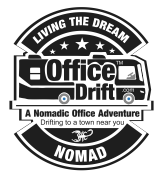 The Free Camping Life Isn’t Free
The Free Camping Life Isn’t Free
The free camping life has been a huge rave for years, centuries even, however, it’s certainly not the same as it used to be. The dream of living 100% free is not possible without breaking laws in the U.S.A. of some kind these days. Not to mention all the resource limitations in such a time.
If you have been chasing the free camping dream or heard about how awesome it is and thinking about trying it, be sure you are prepared for the reality checks that you will be confronted with daily.
The reality checks of free camping life
The following lists of reasons why free camping is no longer free is not comprehensive. It’s just to give you a basic idea of the realities that come with such a lifestyle.
Free Urban Camping:
- Municipality laws have many restrictions that make it very hard to park or camp in a public place.
- Fuel/maint./repair expenses – If you are in a vehicle, it’s inevitable that there will be some costs to keeping it working and moving.
- Free urban camping is classified as homelessness in many cities.
- Shower/Hygiene – Taking a shower using someones private water hose is considered trespassing and possibly theft. However, there are some free options available (Public bathroom sink, homeless shelter, etc.).
- Parking overnight is frowned upon long term and against the law in most cities.
- Sleeping in a vehicle is frowned upon and against the law in most cities.
- Sleeping in a tent or on the sidewalk in pubic places is generally frowned upon and against the law in many cities.
- Stealth camping is no longer as easy as it used to be. With all the citizens being told by the news to call the police and report suspicious activity, all it takes is one person to see you enter your vehicle or tent and not move or come out and a call is placed, putting you and your vehicle in jeopardy of being towed and impounded.
- Food/Drink – Sure you can hit a church, homeless food kitchen, or go to an AA meeting to get some free food and drinks, but the reality is that food and drinks will cost you money otherwise.
- Hunting for your own food within city limits is generally illegal.
- Supplies – Every day supplies for comfort and survival cost money.
Free Boondocking/Camping in the Wild:
- Keeping a large number of the above in mind when it comes to supplies, you will need even more supplies out in the wild than you would in the city, which costs money.
- You will no longer have the luxury of walking a couple blocks to drink out of a garden hose and most the water outdoors needs to be filtered/cleaned before consumed due to bacteria. You can bring water jugs (Costs money), but will need to use fuel (Costs money) to get more when you run out.
- Food procurement takes equipment (Costs money) and skills. If you have never hunted or trapped for food before, you’re going to find out the hard way that it’s not as easy as some made it look or sound.
- Once you do finally catch dinner in the wild, it need to be skinned, cleaned, prepped, cooked, and stored properly, which also requires tools (Costs money) and skills to do.
- You need basic shelter from the elements/whether, which costs money for the tent/rv or the tools to build your own in the wild.
- BLM and other public lands that used to be free to campers now charge a fee of some kind to help cut back on the number of people using the land and to help fund a crew to clean up the messes today’s campers leave/liter.
![]()
 Population growth, liter bugs, and limited resources
Population growth, liter bugs, and limited resources
It’s no big secret that many national and state parks are no longer free due to people littering and not cleaning up after themselves, which kills the plant life and wildlife in the area.
Match that up with limited resources and a growing population of human consumption, limits must be imposed to help preserve the resources from being used up or destroyed.
![]()
 Free camping perspective
Free camping perspective
For perspective, if you have a small lake that has 100 fish in it and 5 free boondockers/campers using the lake for a food and water source, at 1 fish per day per person x 7 days = 35 fish x 4 = 140 fish in a month, but your lake only had 100 fish, which must mate and lay eggs to create more fish. It takes much longer than a month for a fish to hatch and grow to size for consumption.
Now add 100 free campers to the same boondocking/camping spot, how long will the food resource last now?
You can keep scaling this up, even make the lake and fish numbers larger, however, the mass numbers of people entering the free camping life scene these days far exceeds what most lakes will produce to sustain them all and that’s if a free camper is lucky enough to find a food producing lake without any fishing restrictions. Such restrictions are put in place to allow the fish time to breed and multiply. Otherwise, they go extinct and everyone starves to death.
The above is just one small aspect of resource procurement and survival. Can you identify poisonous berries and consumable berries? One wrong guess from an inexperienced and unprepared camper can be fatal.
![]()
Questions to ask yourself
- Can you defend yourself against a bear or mountain lion that wanders into your camp looking for food?
- Do you have all the skills needed to farm, hunt, and provide basic medical needs when you get sick?
- Do you have any money at all saved to get more supplies?
- Do you have all the skills needed to survive out in the wild, without any help?
![]()
The unfortunate reality
It’s unfortunate, but each week we see on the news that someone is in critical condition or died venturing out into the free camping life unprepared. The reports are for various different things, such as, but not limited to:
- Starvation
- Dehydration
- Heat stroke
- Attacked by wild animals
- Fell while climbing
- Got sick and had nobody to help nurse them
- Had an accident and no way to call for help
- A tree fell on them while trying to cut one down to build a hut
- Hunting accident (Caught in their own snare or shot them self)
- Fell in a hole and couldn’t get out
- Broke/sprained ankle and could not get out of the way of danger fast enough
- Drowned in a lake
![]()
 The list goes on and on. You google these types of things and see that there are thousands of reported cases and even more missing persons reports of people that were never found by search parties.
The list goes on and on. You google these types of things and see that there are thousands of reported cases and even more missing persons reports of people that were never found by search parties.
At the end of the day, the free camping life is not for everyone and most city folks have no clue what it takes to truly survive out in the wild, other than what they saw in a blog or youtube video. Actually doing yourself is way different than watching someone else do it (Or claim they did it).
If you are not fully prepared, just don’t do it. If you don’t have an income stream or large savings that allows you to procure supplies in today’s overpopulated world where resources have more restrictions to keep them from being consumed too fast, don’t venture out into the wild.
Remember
For those of you that hate the government and businesses charging for resources and supplies, keep in mind, if it was all free, it would be consumed 100x faster, just like the fish in the lake example above. At some point, restrictions or price tags must be imposed to help stretch the resources and limit consumption or waste.
![]()
 IMPORTANT: The unexpected always happens when you least expect it. No matter how good you maintain your set up, something is going to break, fail, or short circuit, eventually. The more you drive it, pull it, push it, or use it, the more wear and tear will happen, increasing the likelihood of maintenance or repair being needed.
IMPORTANT: The unexpected always happens when you least expect it. No matter how good you maintain your set up, something is going to break, fail, or short circuit, eventually. The more you drive it, pull it, push it, or use it, the more wear and tear will happen, increasing the likelihood of maintenance or repair being needed.
 WARNING: If you can’t afford repair costs just starting out, you may want to take a step back and reassess your situation to be sure a nomadic lifestyle is right for you. The last thing you want to do is get stranded somewhere you don’t want to be because your rig broke down and you can’t afford to fix it.
WARNING: If you can’t afford repair costs just starting out, you may want to take a step back and reassess your situation to be sure a nomadic lifestyle is right for you. The last thing you want to do is get stranded somewhere you don’t want to be because your rig broke down and you can’t afford to fix it.
If the above is true, a safer option for you might be to look into long term RV parks with full hookups and amenities that are more cost effective than what you pay in rent/utilities now. You can even find RV parks around the country for $100 to $350 per month including amenities. This will allow you to live below your means with some of the same creature comforts and allow you to start putting more money into your savings/retirement fund or to reinvest into bettering your lifestyle (When done right).
Once you get your finances back in order and get the hang of your rig/set-up (Inside and out), then start venturing around the country like a nomad.
This lifestyle is not for everyone. If you can, do a test run for a few weeks/months to make sure you can adapt to a smaller space, long term. You don’t want to be miserable out here, you want to be happy, healthy, and adventurous.
Note: Always keep track of your nomadic lifestyle expenses.
